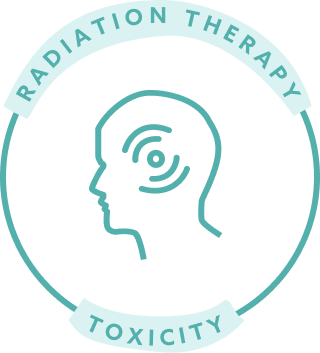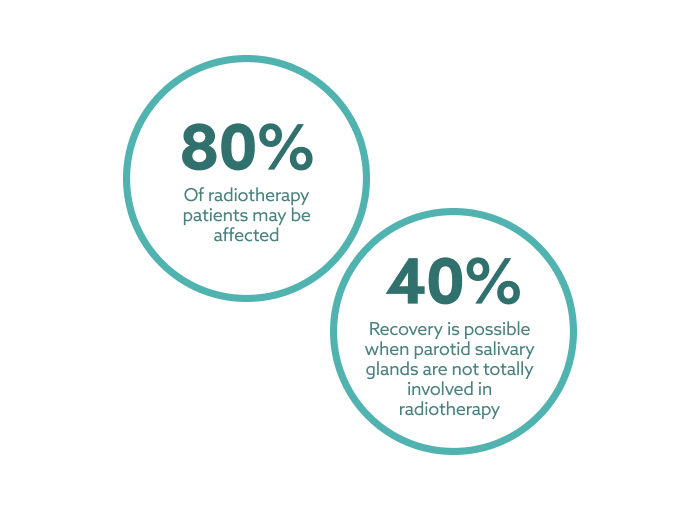Cancer Therapy & Dry Mouth
Dry mouth (xerostomia) is one of the most common symptoms in cancer patients and can significantly reduce a patient’s ability to eat, sleep and speak.2,15,16

Radiation Therapy
Radiation therapy, often with concurrent chemotherapy, is frequently used in the management of head and neck cancer as definitive or adjuvant treatment.¹⁷
Adjuvant treatment is an additional cancer treatment given after the primary treatment to lower the risk that the cancer will come back.
Dry Mouth & Radiation Therapy
Dry mouth is the most common adverse effect associated with standard radiation therapy to the head and neck and may affect 80% of the patients who need radiotherapy either as a primary treatment, in combination with surgery, in combination with chemotherapy, or as palliation (that’s a medical term for the relief of symptoms and suffering caused by cancer and other life-threatening diseases).8,14
Acute xerostomia from radiation is dry mouth that is caused by an inflammatory reaction to the treatment. Late xerostomia (which can occur up to one year after radiation therapy) results from fibrosis of the salivary gland and is usually permanent.⁸
When the parotid salivary glands are not totally involved in the radiation treatment, up to 40% recovery is possible.¹⁰


Cancer Therapy Drugs
Some drugs that are used in the treatment of cancer can also change the composition and flow of saliva (usually temporary), resulting in dry mouth. Dry mouth may also occur during graft-vs.-host disease (a condition that might occur after a donor stem cell transplant). When donor cells infiltrate the recipient’s salivary glands and other tissues, changes can occur in a clinical pattern resembling those seen in Sjögren’s syndrome.⁸
